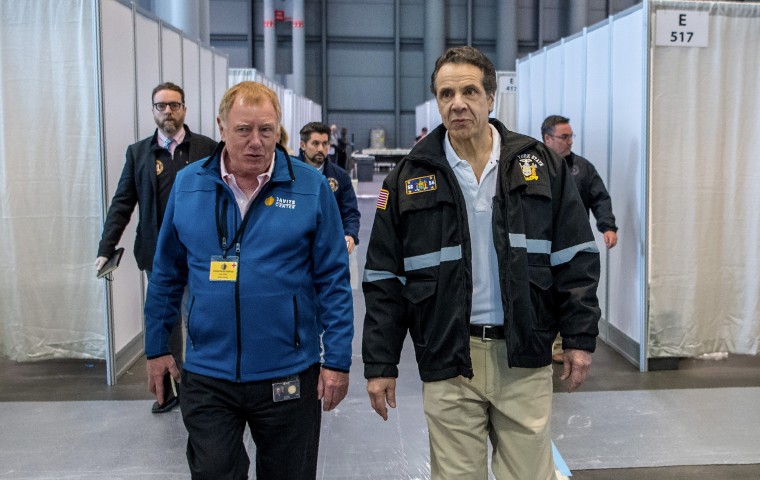In the latest economic aid package, which cleared the Senate late yesterday, Democrats got a lot of what they asked for. The bill includes improvements to the Paycheck Protection Program, for example, as well as funding for hospitals that Republicans were originally prepared to delay. From a progressive perspective, there's no denying the final version is a considerable improvement on the alternative pushed by GOP leaders last week.
But there was one key priority that didn't make the final bill: aid to states and municipalities. Republicans deemed this a "non-starter" and wouldn't budge. Fearing a collapse of the process, Democratic leaders yielded on this point, leaving little doubt they expect to return to it in the next round of talks.
But before that process gets underway, an unanswered question hangs overhead: shouldn't Republicans agree with Democrats about the importance of aiding cash-strapped states?
The policy implications should be obvious to everyone involved: state and local governments are facing catastrophic conditions, not just in the health care sector as medical providers struggle to keep up with the pandemic, but also with overwhelmed unemployment systems and a dramatic loss in tax revenue. The more Republicans at the federal level resist throwing states and municipalities a lifeline, the more states -- which cannot legally run deficits -- will have to slash public services and public-sector jobs, even as the White House expects them to take the lead on a variety of critical fronts.
The impact on the economy -- in an election year -- should be obvious. For Donald Trump, who is desperate to see shuttered states re-open, this shouldn't be an especially tough call.
With this in mind, the president signaled last week that he's open to increased state aid, and he made related comments to New York Gov. Andrew Cuomo (D) at the White House yesterday. According to Senate Minority Leader Chuck Schumer (D-N.Y.), Treasury Secretary Steven Mnuchin made similar commitments to Democratic leaders this week.
So what's the problem? If there's so much agreement, why did the GOP refuse to include state aid in the latest package? Politico had this striking item earlier this week:
Senate and House Democrats have been pushing hard in negotiations for $150 billion in funds for state and local governments to pair with the hundreds of billions the administration wants in small business lending. But the White House and Trump Administration have been holding out because, in part, they believe if Congress keeps cutting checks for state and local governments, they will be disincentivized to open up their economies.
The same day, Axios had a similar report:
The thinking among some Trump administration officials is that many states should be reopening their governments soon and that additional funding could deter them from doing so.
If the reporting is accurate, the position is awfully tough to defend. In effect, Team Trump is looking at state aid as leverage over governors and mayors.
It's a posture that's likely to backfire on the president, either through worsening economic conditions, worsening public-health conditions, or both.

